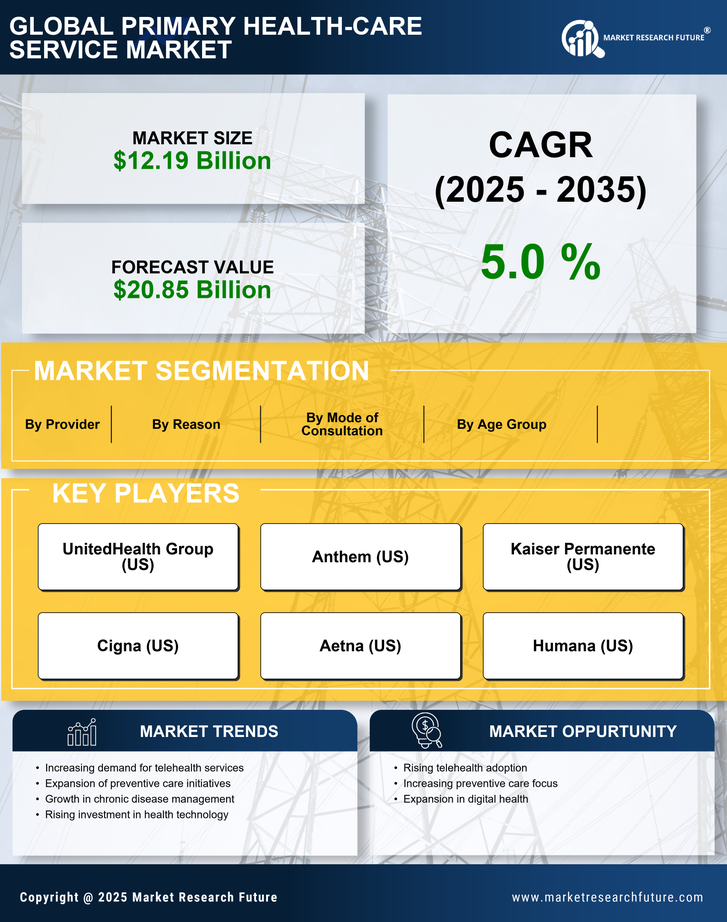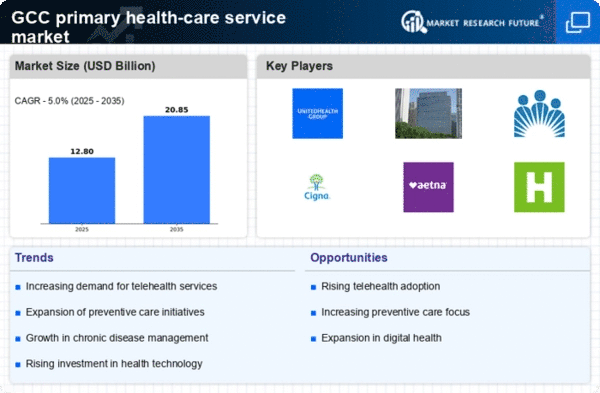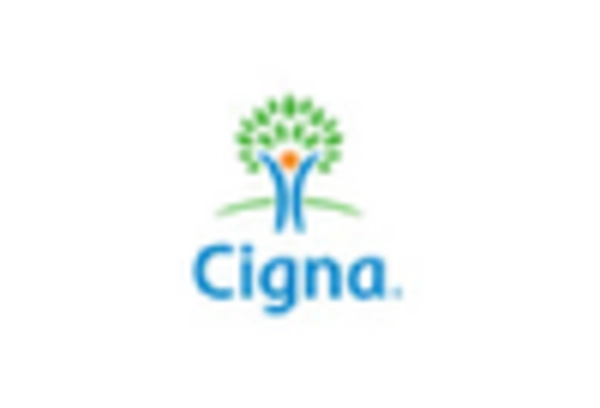Emphasis on Patient-Centric Care Models
The primary health-care-service market is witnessing a shift towards patient-centric care models, which prioritize the needs and preferences of patients. This trend is gaining traction in the GCC as healthcare providers recognize the importance of personalized care in improving patient satisfaction and outcomes. By adopting a more holistic approach, which includes shared decision-making and tailored treatment plans, healthcare providers are likely to enhance the overall patient experience. This emphasis on patient-centricity is expected to drive growth in the primary health-care-service market, as patients increasingly seek services that align with their individual health goals and preferences.
Rising Demand for Accessible Healthcare
The primary health-care-service market is experiencing a notable increase in demand for accessible healthcare services across the GCC region. This trend is driven by a growing population and an increasing prevalence of chronic diseases, which necessitate more frequent healthcare visits. According to recent data, the GCC's population is projected to reach approximately 60 million by 2025, leading to a higher demand for primary health care. Additionally, the rise in health awareness among the populace is prompting individuals to seek preventive and routine care, thereby expanding the market. The emphasis on accessibility is also reflected in government policies aimed at enhancing healthcare infrastructure, which is likely to further stimulate growth in the primary health-care-service market.
Growing Focus on Chronic Disease Management
The primary health-care-service market is increasingly focusing on chronic disease management, which is becoming a pressing concern in the GCC. With lifestyle-related diseases such as diabetes and hypertension on the rise, healthcare providers are adapting their services to address these challenges. Data suggests that nearly 30% of the adult population in the GCC is affected by diabetes, necessitating comprehensive management strategies. This shift towards chronic disease management is likely to drive demand for specialized primary health care services, as patients require ongoing monitoring and support. Consequently, the primary health-care-service market is expected to expand as providers enhance their capabilities to manage chronic conditions effectively.
Increased Health Expenditure by Governments
Government expenditure on healthcare is a critical driver of the primary health-care-service market in the GCC. Recent reports indicate that healthcare spending in the region is expected to grow at a CAGR of around 7% through 2025. This increase is largely attributed to government initiatives aimed at improving healthcare access and quality. Investments in healthcare infrastructure, including the establishment of new clinics and hospitals, are likely to enhance service delivery. Furthermore, the allocation of funds towards public health campaigns and preventive care programs is expected to bolster the primary health-care-service market, ensuring that a larger segment of the population receives necessary health services.
Technological Advancements in Healthcare Delivery
Technological advancements are significantly influencing the primary health-care-service market, particularly in the GCC region. Innovations such as telemedicine, electronic health records, and mobile health applications are transforming how healthcare services are delivered. For instance, the adoption of telehealth solutions has surged, with estimates suggesting that telemedicine usage could increase by over 30% in the coming years. These technologies not only improve patient engagement but also enhance the efficiency of healthcare delivery. As healthcare providers increasingly integrate these technologies into their services, the primary health-care-service market is likely to witness substantial growth, driven by improved patient outcomes and operational efficiencies.

















